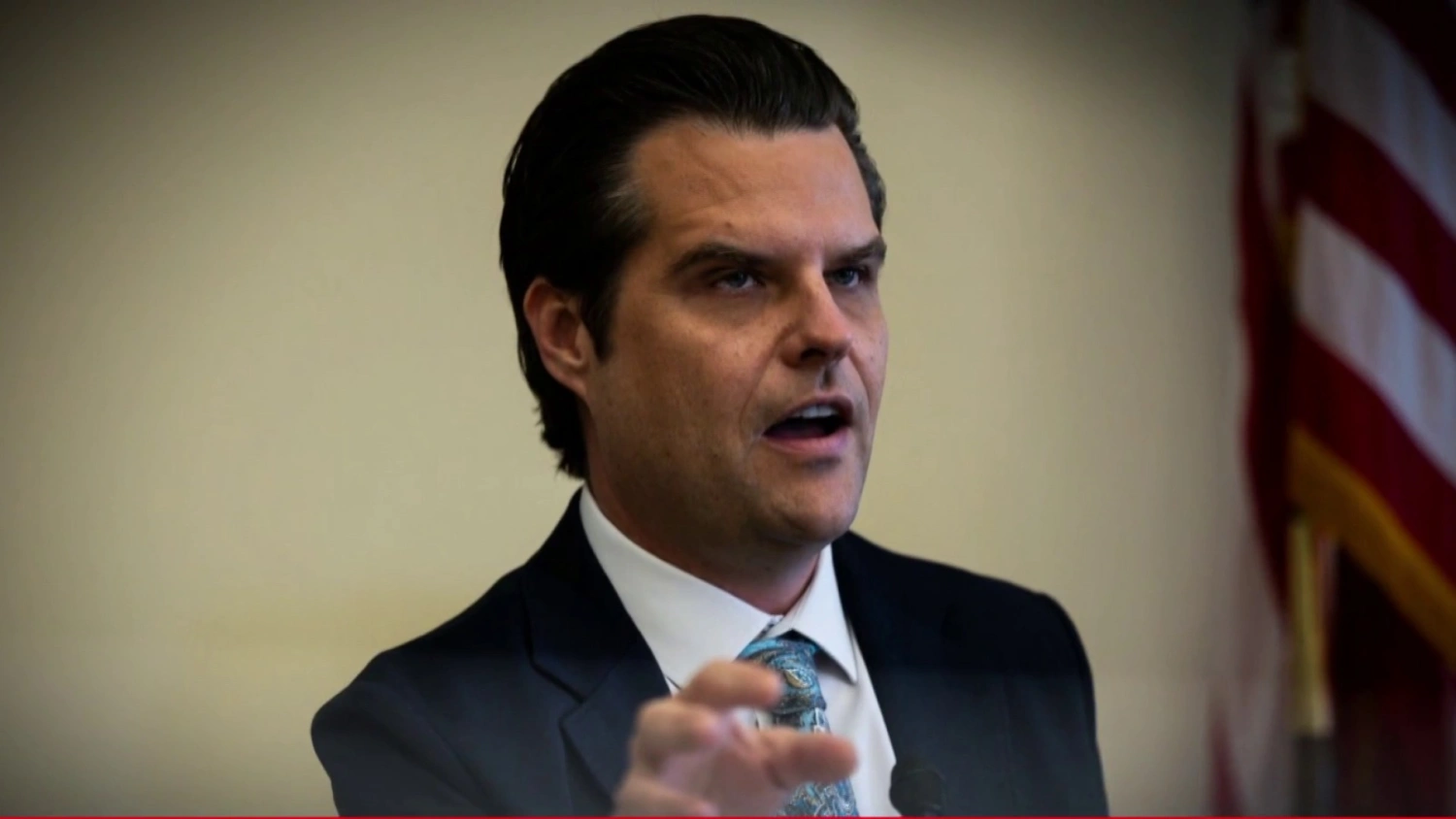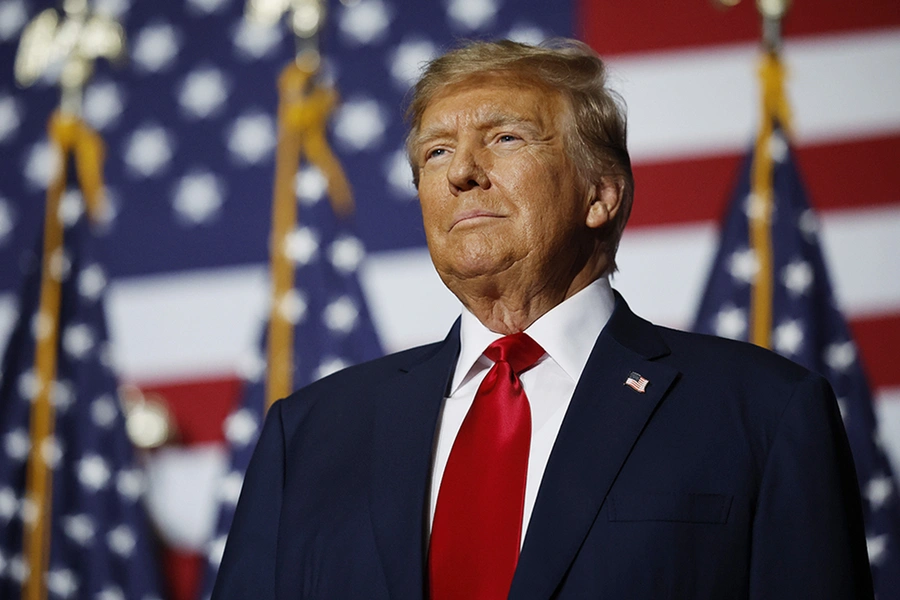In a political era marked by calls for accountability and transparency, a prominent Democratic lawmaker has reignited a contentious debate by demanding the release of an ethics report on Representative Matt Gaetz. The Florida congressman has been embroiled in controversy for years, facing allegations of misconduct that have generated intense scrutiny and media coverage. While Gaetz has denied any wrongdoing, the pressure to release the report comes as the public demands answers about the ethical conduct of elected officials. This development underscores the growing tension between the principles of transparency and political maneuvering in Washington.
The Allegations Against Matt Gaetz
Matt Gaetz, a Republican firebrand representing Florida’s 1st congressional district, has been a polarizing figure in American politics since his election in 2016. Known for his outspoken and confrontational style, Gaetz quickly rose to prominence within the GOP, becoming a staunch ally of former President Donald Trump and a key figure in the party’s far-right wing. However, his political ascent has been overshadowed by a series of allegations that have called his ethics and behavior into question.
In 2021, reports surfaced that Gaetz was under federal investigation for alleged sex trafficking and other potential crimes, including paying for sex with a minor. These allegations, stemming from his association with a former Florida tax collector who pleaded guilty to a range of charges, created a firestorm of media attention and calls for his resignation. Gaetz has vehemently denied these accusations, framing them as politically motivated attacks by his opponents. While the Department of Justice ultimately declined to charge him in 2023, the controversy left a cloud of suspicion hanging over his career.
The House Ethics Committee’s Role
Amid the federal investigation, the House Ethics Committee launched its own inquiry into Gaetz’s conduct. The committee, a bipartisan body tasked with ensuring that members of Congress adhere to ethical standards, typically operates with a high degree of confidentiality. Its investigations can include allegations of criminal activity, misuse of public resources, or violations of House rules.
In Gaetz’s case, the committee’s inquiry has reportedly delved into allegations of sexual misconduct, improper relationships, and possible misuse of campaign funds. While the committee has not issued any public statements detailing its findings, its work has become a focal point in the broader debate over congressional accountability.
The Call for Transparency
The recent call to release the ethics report on Gaetz came from a key Democratic lawmaker, whose identity has yet to be disclosed publicly. This demand highlights the growing frustration among some members of Congress and the public about the lack of transparency in ethics investigations. Advocates for the report’s release argue that the public has a right to know whether their elected representatives have engaged in unethical or illegal behavior.
“Transparency is essential for maintaining trust in our democratic institutions,” the Democrat stated in a recent interview. “The public deserves to see the findings of the Ethics Committee, especially when it involves allegations of serious misconduct by a sitting member of Congress.”
This sentiment is echoed by ethics watchdogs and advocacy groups, who have long criticized the House Ethics Committee for operating in secrecy. While the committee’s confidentiality rules are designed to protect members from unfounded accusations and ensure fair investigations, critics argue that these rules often shield lawmakers from accountability.
The Political Implications
The push to release the ethics report comes at a politically charged moment, as the Republican Party grapples with internal divisions and public scrutiny. Gaetz has been a central figure in these dynamics, particularly during the recent turmoil over the House speakership. His role in leading the effort to oust former Speaker Kevin McCarthy and his alignment with the far-right wing of the GOP have made him a lightning rod for criticism.
For Democrats, the Gaetz ethics report represents both a moral imperative and a political opportunity. By calling for its release, they can position themselves as champions of transparency and accountability while putting Republican leadership in a difficult position. If the report contains damaging information about Gaetz, it could exacerbate the divisions within the GOP and raise questions about the party’s ability to police its own members.
However, this strategy is not without risks. Accusations of partisanship could undermine the credibility of the Democrats’ call for transparency, especially if Republicans frame it as an attempt to distract from their own controversies. Moreover, releasing the report could set a precedent for greater transparency in ethics investigations, which might one day implicate Democratic lawmakers.
Gaetz’s Response
Unsurprisingly, Gaetz has dismissed the calls to release the ethics report as part of a broader campaign to tarnish his reputation. In a series of statements and interviews, he has reiterated his innocence and accused his critics of engaging in a “witch hunt” against him.
“These attacks are nothing more than political theater,” Gaetz said in a recent statement. “The Ethics Committee should be focused on ensuring fairness, not becoming a tool for partisan games.”
Gaetz’s defense strategy has been consistent: deny the allegations, question the motives of his accusers, and appeal to his base of supporters, who view him as a victim of political persecution. This approach has allowed him to maintain a degree of influence within the GOP, even as his controversies have alienated some colleagues.
The Broader Debate on Congressional Ethics
The controversy surrounding the Gaetz ethics report is part of a larger debate about how Congress handles allegations of misconduct. Critics argue that the current system is inadequate, with the Ethics Committee often accused of being slow to act and overly protective of members.
Several recent scandals have underscored these concerns, from allegations of insider trading to misuse of campaign funds. In many cases, the public remains in the dark about the details of these investigations, fueling perceptions of a lack of accountability in Congress.
Reforming the ethics process is a complex challenge. Proposals to increase transparency must balance the public’s right to know with the need to protect lawmakers from unfounded accusations. Additionally, any reforms would require bipartisan support, a tall order in the current polarized political climate.
The Path Forward
As the debate over the Gaetz ethics report continues, it raises important questions about the role of transparency in government. Should the public have access to the findings of ethics investigations, even if they are inconclusive or involve unproven allegations? Or does the release of such reports risk creating a culture of trial by public opinion, where accusations alone can damage a lawmaker’s career?
For now, the decision to release the report rests with the House Ethics Committee, which must weigh these competing considerations. Regardless of the outcome, the controversy underscores the urgent need for a broader conversation about how to rebuild trust in Congress and ensure that ethical standards are upheld.
In the meantime, Gaetz’s case serves as a reminder of the stakes involved. For his supporters, he remains a fearless advocate for their values. For his critics, he is a symbol of what is wrong with Washington. And for the public, his story is a test of whether the government is willing to hold itself accountable—even when it means facing uncomfortable truths.



